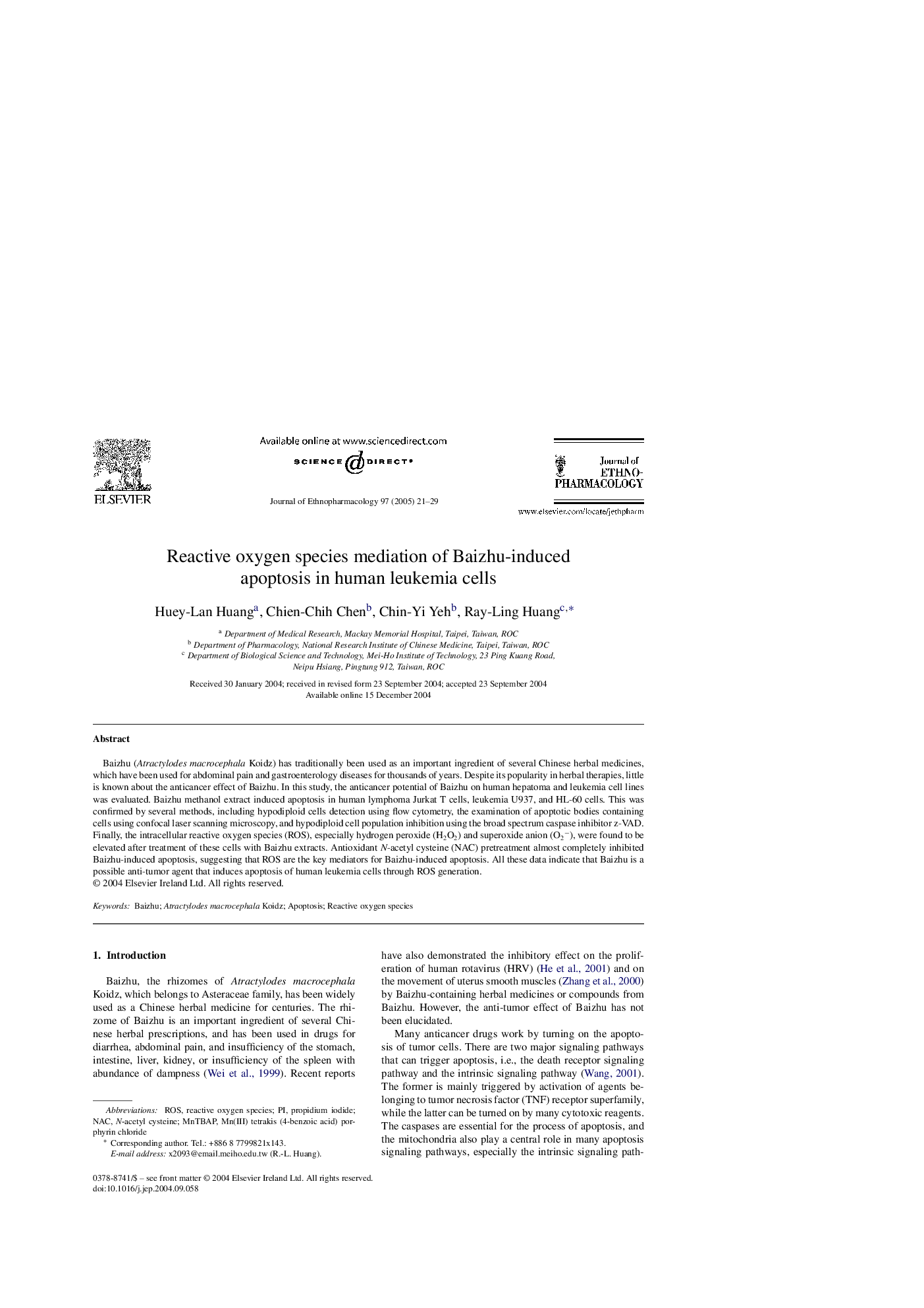| Article ID | Journal | Published Year | Pages | File Type |
|---|---|---|---|---|
| 9009766 | Journal of Ethnopharmacology | 2005 | 9 Pages |
Abstract
Baizhu (Atractylodes macrocephala Koidz) has traditionally been used as an important ingredient of several Chinese herbal medicines, which have been used for abdominal pain and gastroenterology diseases for thousands of years. Despite its popularity in herbal therapies, little is known about the anticancer effect of Baizhu. In this study, the anticancer potential of Baizhu on human hepatoma and leukemia cell lines was evaluated. Baizhu methanol extract induced apoptosis in human lymphoma Jurkat T cells, leukemia U937, and HL-60 cells. This was confirmed by several methods, including hypodiploid cells detection using flow cytometry, the examination of apoptotic bodies containing cells using confocal laser scanning microscopy, and hypodiploid cell population inhibition using the broad spectrum caspase inhibitor z-VAD. Finally, the intracellular reactive oxygen species (ROS), especially hydrogen peroxide (H2O2) and superoxide anion (O2â), were found to be elevated after treatment of these cells with Baizhu extracts. Antioxidant N-acetyl cysteine (NAC) pretreatment almost completely inhibited Baizhu-induced apoptosis, suggesting that ROS are the key mediators for Baizhu-induced apoptosis. All these data indicate that Baizhu is a possible anti-tumor agent that induces apoptosis of human leukemia cells through ROS generation.
Keywords
Related Topics
Health Sciences
Pharmacology, Toxicology and Pharmaceutical Science
Pharmacology
Authors
Huey-Lan Huang, Chien-Chih Chen, Chin-Yi Yeh, Ray-Ling Huang,
